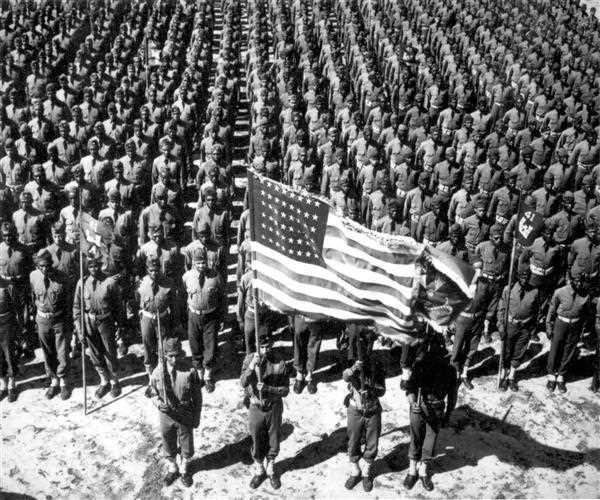African-Americans have battled for the United States all through its history, protecting and serving a nation that thus denied them their fundamental rights as residents. Notwithstanding strategies of racial isolation and separation, African-American officers assumed a noteworthy part from the frontier time frame to the Korean War. It wasn't until the center of the twentieth century that African-American fighters started to get the acknowledgment and balance they merited.

The start of the twentieth century was set apart by World War I, and a large number of African-Americans raced to enlist for the draft. Their energy stemmed to some degree to protect freedom and majority rules system in Europe, yet in addition to the open door, it offered them to demonstrate that they merited more noteworthy rights at home. Their enrollment rate was high, just like their longing to serve on the cutting edges.
All things considered, commendable commitments were attempted and one extraordinary case was the 369th Infantry Regiment (known as the "Harlem Hellfighters") which served on the cutting edges for a half year, longer than some other American unit in the war and made striking because of the way that they had gotten less preparing.
Amid this time the unit never lost any detainees or region to the adversary. France granted the whole unit with Croix de Guerre, that nation's most noteworthy military respect and 171 individuals from the regiment was granted the Legion of Merit.
In the number one spot up to and amid World War II the military foundation kept on keeping up that African-Americans fighters were not as able as their white partners and required more escalated administration. In spite of the proceeding with separation, in excess of a million African-Americans volunteered to serve in the Armed Forces in the battle against Hitler.
As the war advanced states of mind started to gradually change. Some African-Americans were prepared in world-class positions never offered already, for example, the Air Force, and a few units were integrated out of the blue at the Battle of the Bulge.
World War II was a watershed for race relations inside the Armed Forces, and it denoted the start of the end for racial partition inside military units. In 1948 with the interest for social equality mounting, President Harry S. Truman requested integration of the Armed Services and balance of treatment and opportunity without respect to race, shading, religion or national source.
The change was moderate, notwithstanding, and it wasn't until the point when 1953 that isolation formally finished when the Secretary of Defense reported that the last all-dark unit had been abrogated.
The Korean War put this new arrangement under a magnifying glass.
African-Americans served in all battle benefit components nearby their white partners and were associated with all real battle activities, including the progress of United Nations Forces to the Chinese outskirt. Two African-American Army sergeants, Cornelius H. Charlton and William Thompson, earned the Medal of Honor.
The 1960s denoted a noteworthy change for African-American subjects in the United States. The decade additionally denoted the principal significant battle sending of an incorporated military to Vietnam.
The Vietnam War saw the most astounding extent of African-Americans ever to serve in an American war. There was a stamped turnaround from the disposition in past wars that dark men were not fit for battle - amid Vietnam, War African-Americans confronted a substantially more prominent possibility of being on the cutting edge, and therefore a considerably higher loss rate. In 1965 alone African-Americans spoke to right around 25 percent of those murdered in real life.